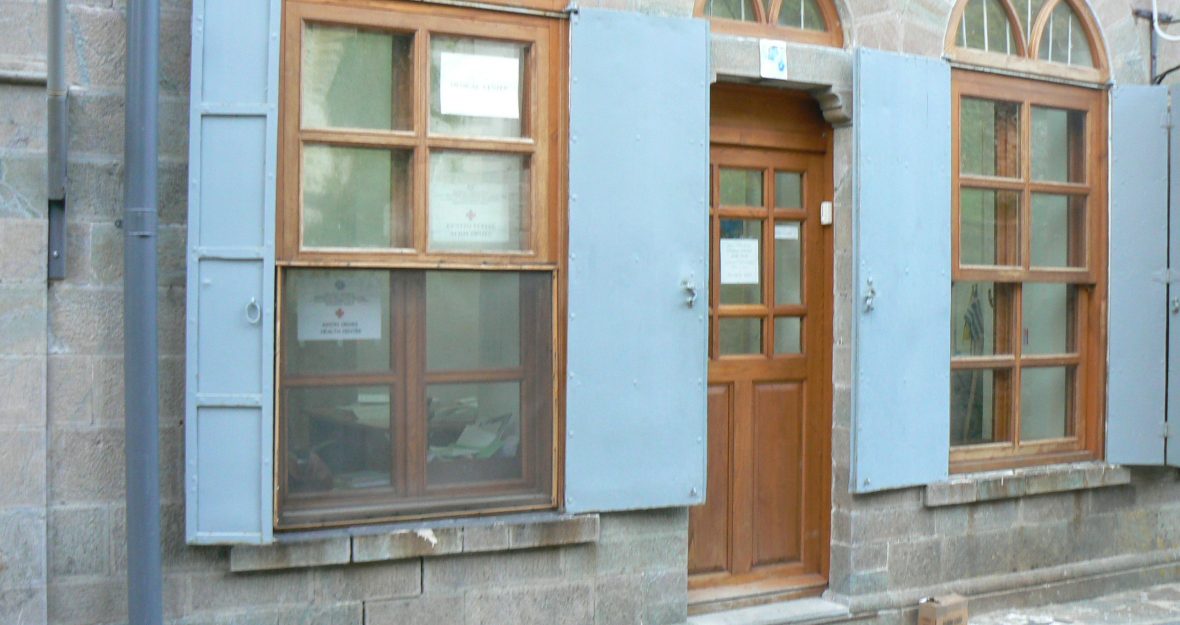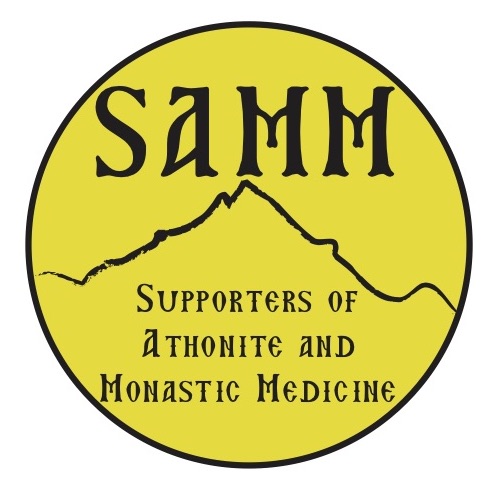Mt Athos, October 10th 2008
Dear SAMM,
It’s one year since my first contact with you and SAMM. On the occasion of the first anniversary of our cooperation, it is proper to express my gratitude for your help during this past year, particularly in respect to the donation of the MdConsult subscription.
In your letter to SAMM of last July you stressed the difficulty of practicing medicine on Mt. Athos. There are undoubtedly many places in the world where medical practice takes place in circumstances more difficult than those experienced by the physician-monks of the Holy Mountain. I would therefore resist the impulse to frame our daily routine and labors in any kind of heroic perspective. It is nevertheless true that our mission here is marked by a number of special characteristics.
In the first place, medical practice on Mt. Athos involves primary care in a setting of geographical isolation that is at times absolute. Mt. Athos is practically an island with a sparsely populated, mountainous terrain and imposing physical barriers, with transportation to mainland Greece only by sea or air. This means that there are times, especially during the winter months, when it is absolutely impossible to evacuate a patient for a period of two or three days. It also means that, for twelve hours of every day (i.e., the duration of the night), there is no possibility for emergency evacuation by helicopter. This isolation proves to be a difficult feature to our practice, requiring high levels of initiative, along with a certain degree of risk.
Second, monasteries on Mt. Athos function as institutional settings that provide care for the debilitated and/or terminally ill members of their communities. They also function as inpatient clinics, when this is necessary or feasible. Supportive care, geriatrics, palliative and terminal care constitute a large part of our work, which of course encompasses the entire range of internal medicine. The responsibility of maintaining in a constant state of preparedness, a monastery clinic having as few as five beds, is, in our experience, a true challenge, and calls for efficient logistics, short and long-term planning, and a state of general preparation for a wide variety of medical problems. For example, we may very well have to temporarily hospitalize a patient with a hip fracture; face the technical issues of a difficult urinary catheterization, or the proper placement and maintenance of a central venous line; we may have to stabilize an acutely ill patient, remove a foreign body from the hypo pharynx, treat a rapidly spreading soft tissue infection, or deal with a life-threatening arrythmia. At the same time, we may have to prescribe prescription lenses for an older monk unable or unwilling to travel outside Mt. Athos, perform an intra-articular steroid infusion, handle a peritoneal catheter, or follow up a patient with heart failure.
Third, all of this work has to be accomplished with the limited diagnostic resources available on Mt. Athos. Even though state authorities could better equip and staff the local “Health Center” on Mt. Athos, our small district of three hundred and fifty square kilometers, occupied by four thousand permanent and temporary inhabitants, should not claim disproportionate resources and privileges. In the words of the wise Athonite elders, since we have freely chosen to dwell in the wilderness, we should not seek to bring with us the “comforts of the world,” for in that case it would have been simpler never to have left the latter.
What, then, is our mission as physicians in the wilderness of the Holy Mountain? Is it to replicate, as closely as possible, the “comforts” and “conveniences” of sophisticated modern medical care, preventive services, counseling, and all the rest? My answer is a decisive “no”.
Our mission is to join a large supply of human determination, effort, and expertise to a few, modest, yet properly functioning facilities in order to serve those who have dedicated their lives to the monastic ideal; those who visit Mt. Athos in order to find answers or support; and those who, for any number of reasons, occupational or otherwise, are temporarily sharing a portion of their life’s journey with us. It is this effort of ours that is best supported by access to knowledge and the most up-to-date information.
If that is our work, one might ask “what are the results?”
First, the lay people (pilgrims, workers, state officers, etc.) who receive our care are very appreciative of our services. Such care is part of our concern for the physical well being of the human person which is deeply rooted in one thousand years of Athonite tradition. Orthodoxy does not view man as the site of a conflict between material and spiritual principles, but rather as a dynamic unity, an indivisible whole, that is to be respected and cherished in its fullness. Athonite monasteries are committed to offering visitors the best of both their material and spiritual goods. Medical care is obviously a part of this commitment, and one which, in my experience, enables visitors to feel at home with us.
OK with lay people, you may say, but what about monks? What’s their attitude towards our work?
Fellow monks understand and recognise our motives. Athonites are characterised by a deep sense of gratitude, even when somebody is not able to offer help to them or they themselves choose to decline it. When it comes to medical intervention, fellow brothers and fathers show respect to the knowledge that lies behind the art of medicine and the caring doctor, layman or monk, who implements it. It is also very interesting to see simple, uneducated, elderly Athonites incorporate orthodox theological attitudes towards knowledge, scientific or otherwise: they remain unimpressed by it and hold a rather anti-rationalistic ground. They know, however, to honour it as a fruit of human intellect, a spark of universal truth and an icon of God’s wisdom. One would say that such people remain free from the confinements and the restraints of the intellect, not out of disdain for it, but due to their faith and adherence to the heart as the place where man encounters the Holy Spirit.
Second, when it comes to medical intervention to fellow monks, we explicitly witness the gratitude for pain/symptom relief. Orthodox theology has always been “eucharistic”, avoiding the extremes of both Manichaeism and reductive secularism. Athonite spiritual fathers are, on the one side, conscious of our carnal limits and demands and, on the other, never stressing the importance of physical deeds (e.g. pain tolerance, neglect of bodily needs, etc.) rather than inner, spiritual accomplishments: humility, love, faith, joy, self denial and trust in God. Having fifteen years of medical practice on Mt.Athos and encountering many wise spiritual fathers, I have witnessed their commitment to the most strict ascetic regimens and labors together with the utmost condescension to bodily needs of others when it comes to disease, feebleness, or just fatigue. That is why pain/symptom relief for the Athonites, although not always asked for (and rarely demanded), is truly appreciated.
Third, also recognised by my fellow brothers and fathers, is avoiding (when possible) the need for referral. More than the simple desire of every patient to be treated within close proximity to his residence, self-confinement to the limits of the peninsula has always been considered an ascetic deed of great value. Indeed, inner and outer renunciation of the “world” is perhaps one of the most moving expressions of, as I like to call it, “Athonite bravery”. Despite the relative ease of travel in our days, avoiding unnecessary sorties into the “world” is still considered paramount on Mt. Athos. To the extent that medical care on Athos contributes to that ideal, it is rightly acknowledged as a great gift by those who seek to encounter God in this place.
Finally, in answering the “why” of medical care on Mt.Athos, I would have to make a personal statement: I know how difficult it is to become a monk. It is a hard and lonely way for only a few, not necessarily the best, but rather the ones God has chosen for reasons which go beyond our knowledge. I want those few to lead long lives; and I want them healthy, too, so that they can continue their spiritual struggle and give their best to God, to others and to the world. God can work wonders, if He wants to, through disease or suffering. However I, as a feeble man, am in desperate need of those Athonite monks – the spiritual fathers, fellow brothers, young or old, more or less successful in their own way. I need to see them gathering in church every night, praising God, laboring throughout the day for their daily bread, and then getting quietly back to their cells for their nightly secret encounter with Him.
It is to this aim that your assistance contributes, for which I am truly grateful.
Yours in Jesus Christ,
Fr Ermolaos
Simonos Petras Monastery,
Mt.Athos

